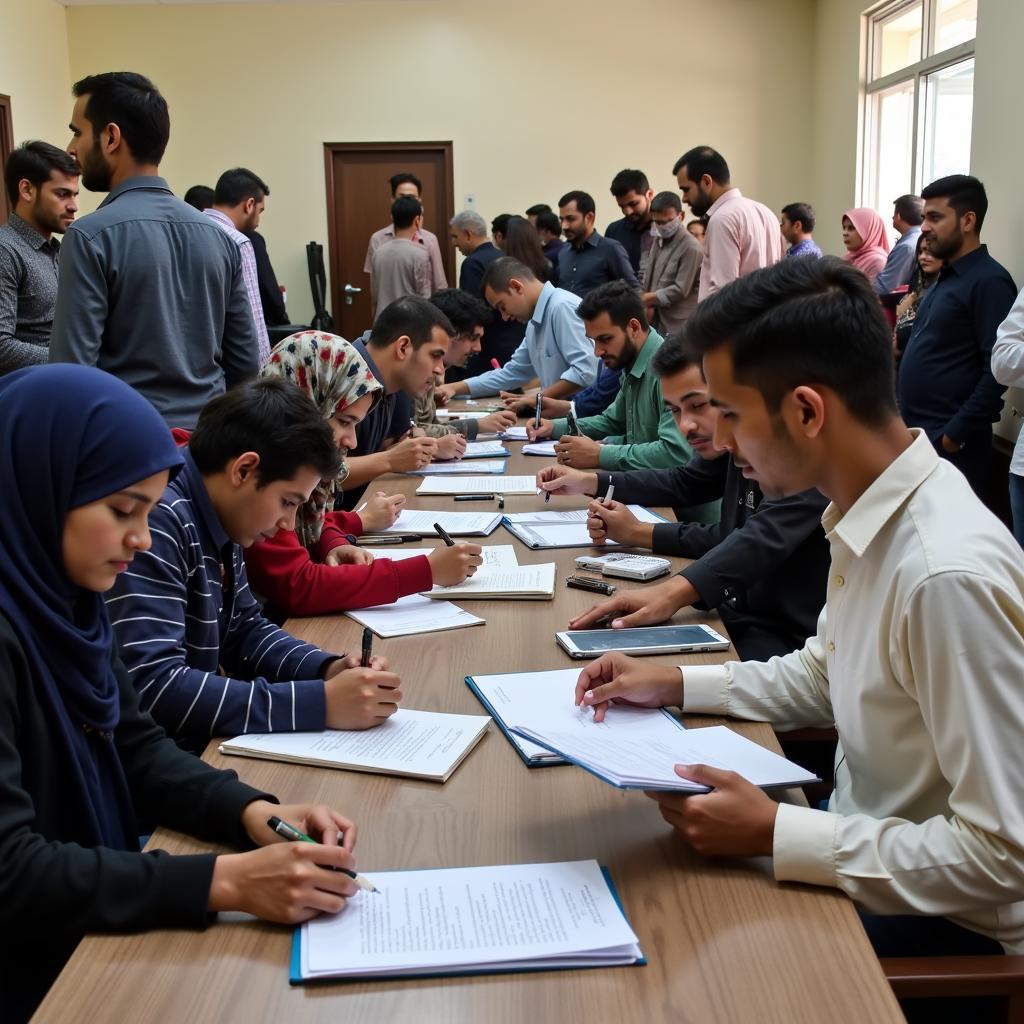The Registration Act 1908 is a cornerstone of property law in Pakistan, governing the registration of documents related to immovable property. It provides a legal framework for recording transactions and establishing ownership, playing a crucial role in preventing fraud and disputes. This act is essential for anyone buying, selling, or otherwise dealing with property in Pakistan.
Key Provisions of the Registration Act 1908
The Registration Act 1908 outlines which documents are compulsory for registration and those which are optional. Compulsory registration provides conclusive proof of execution, while optional registration offers evidentiary value. The act also specifies the process for registration, including the presentation of documents, payment of fees, and the maintenance of registers. Understanding these provisions is vital for navigating property transactions legally and securely.
Compulsory Registration: Protecting Your Property Rights
Documents such as sale deeds, mortgage deeds, lease agreements for terms exceeding one year, and gifts of immovable property are mandatorily registered under the Registration Act 1908. This mandatory registration safeguards the rights of property owners and provides legal certainty in transactions. Failure to register these documents can lead to complications and challenges in establishing ownership.
Optional Registration: Adding an Extra Layer of Security
While certain documents are mandatory for registration, others, such as wills and partition deeds, are optional. Although not legally required, registering these documents provides additional security and can simplify legal proceedings in the future. This proactive approach can prevent potential disputes and protect the interests of the parties involved.
The Registration Process: A Step-by-Step Guide
The registration process involves several key steps, including presenting the document at the sub-registrar’s office, paying the prescribed fees, and verifying the identities of the parties involved. The sub-registrar then examines the document, ensures its compliance with the act, and enters the details in the designated registers. A registered copy is then provided to the applicant, serving as conclusive proof of the transaction.
 Registration Process at the Sub-Registrar's Office
Registration Process at the Sub-Registrar's Office
Importance of the Registration Act 1908 in Pakistan
The Registration Act 1908 is critical for maintaining transparency and order in property transactions. It helps prevent fraudulent activities, resolves disputes, and provides a clear record of ownership. “The act provides an essential framework for secure property transactions,” says Barrister Ali Khan, a leading property lawyer in Lahore. “It offers a clear path to legal recourse in case of disputes, protecting the interests of all parties.”
Common Questions about the Registration Act 1908
What documents are required for property registration? This depends on the type of transaction. For sale deeds, documents like title deeds, identity proofs, and property tax receipts are typically required.
What are the fees for registration? Registration fees vary based on the value of the property and the type of document being registered.
What happens if a document is not registered? Unregistered documents may not be admissible as evidence in court and can lead to complications in proving ownership.
“Understanding the nuances of the Registration Act is paramount for ensuring a smooth and legally sound property transaction,” adds Advocate Sarah Malik, a specialist in property law in Karachi. “It’s always advisable to consult with a legal expert to navigate the complexities and avoid potential pitfalls.”
 Importance of Registration Act in Pakistan for Property
Importance of Registration Act in Pakistan for Property
Conclusion
The Registration Act 1908 plays a crucial role in safeguarding property rights and ensuring transparency in Pakistan. By understanding its provisions and following the prescribed procedures, individuals can navigate property transactions with confidence and protect their interests.
FAQs
-
What is the purpose of the Registration Act 1908? To provide a legal framework for registering documents related to immovable property.
-
Is registration compulsory for all property documents? No, some documents are compulsory, while others are optional.
-
Where can I register a property document? At the sub-registrar’s office in the jurisdiction where the property is located.
-
How long does the registration process take? This can vary, but it typically takes a few days to a few weeks.
-
What are the consequences of not registering a compulsory document? It may not be admissible as evidence in court and can lead to difficulties in establishing ownership.
-
How can I find a reputable lawyer to assist with property registration? Seek recommendations from friends, family, or other professionals.
-
Are there any online resources available to learn more about the Registration Act 1908? Yes, you can find information on government websites and legal portals.
Other helpful resources on our website:
For further assistance regarding property transactions and the Registration Act 1908 in Pakistan, please contact us.
For any assistance, feel free to contact us. Call: +923337849799, Email: news.pakit@gmail.com or visit our office at Dera Ghazi Khan Rd, Rakhni, Barkhan, Balochistan, Pakistan. We have a 24/7 customer support team.